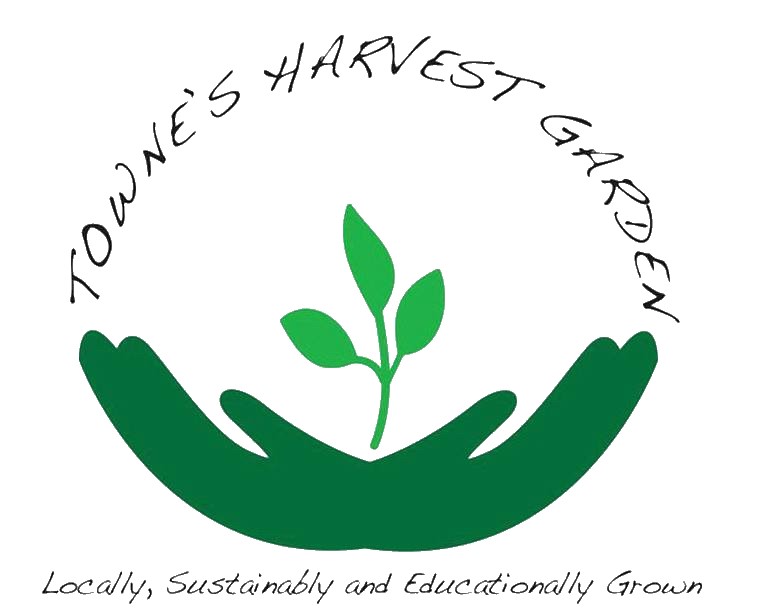Get Involved
CSA Program
Please see http://townesharvest.montana.edu/communitysupportedag/ for details on how to purchase a CSA share and receive delicious organic produce throughout the summer and fall harvest seasons.
Towne's Harvest Garden (THG) provides a number of opportunities for involvement.
- Farm tours for community members and education groups.
- MSU students from across campus can take summer courses and internships.
- Students, faculty and community members can volunteer throughout the growing season.
- Delicious CSA shares are available for purchase by all!
Volunteering
Towne's Harvest Garden always welcomes community members, individuals or groups, who would like to experience the joys of farming. No gardening experience is necessary. Volunteers will join our student interns and farm staff in the daily activities of the farm including planting, weeding, harvesting and preparing vegetables for sale or distribution.
If you do decide to come out, please bring water and appropriate shoes, clothing, work gloves, sunscreen, and a hat. Children are welcome with parental supervision. Please no dogs or other animals.
For more specific information, or if you'd like to be added to our volunteer listserve, please contact us at townes.harvest@gmail.com.
Schedule a Farm Tour
We are happy to schedule a tour for your group (K-12 classes, special events, field trips, etc) during our summer and fall production seasons. Please read the Farm Tour Guidelines for more information:
Farm Tour Guidelines
-
Tour Description: Get ready to explore Towne’s Harvest Garden, MSU’s student vegetable farm! During your tour, someone knowledgeable will show you around our vegetable plots and high tunnels. We will discuss the growing and harvesting techniques for some key crops. Participants will have the opportunity to pick their own veggie in peak ripeness, as determined by the tour guide. Tour members should go home with a basic understanding of what a small-scale organic farm in the Bozeman area has to offer. Tours last no more than one hour.
-
Tour Guidelines: Tours must be scheduled at least two weeks in advance, and must be confirmed by Towne’s Harvest. Please arrive on time and contact Towne’s Harvest Garden if your plans have changed. We ask that you park in the Miller Pavilion lot which is located west of the Towne’s Harvest Garden turnoff. Please encourage tour members to stay in a group, and walk on designated paths. When picking a veggie, please only touch and pick the crop that is instructed by the tour guide. All tours hosting children must be accompanied by at least one adult from your organization, possibly more depending on the group size and age range.
-
Things to Consider: This is an outdoor experience with varying weather conditions, please bring appropriate clothing, closed toed shoes, hat, sunglasses, sunscreen, and water. Our porta potty and hand washing station are located on the East side of the barn. The following are NOT ALLOWED at the farm: dogs, alcohol, and smoking.
- To schedule a tour: Email townes.harvest@gmail.com.
-
Farm Location: From Main St. turn south on 19th Ave., turn right on Garfield, turn left at the Bozeman Area Research and Teaching (BART) Farm sign, drive down the dirt road. Towne’s Harvest Garden is one the left, please park to the right in the Miller Pavilion parking lot.
Summer Courses
SFBS 296. Practicum: Towne’s Harvest (3 cr)
This course provides an essential hands-on experience at Towne’s Harvest Garden. Students will practice all aspects of community supported agriculture (CSA) from production through distribution and marketing. Production skills learned include planting, transplanting, weeding, integrated pest management (IPM), irrigating, managing soil fertility, and harvesting. Distribution activities include sorting, washing, weighing and recording data, cold storing, and preparing produce for transport to various distribution sites. Marketing activities include displaying and selling produce at our on-campus farm stand, recording sales and accounting data, displaying produce for CSA distribution, assisting CSA members with produce identification and selection, and conducting outreach on and off the farm. Students will work side by side with THG personnel to learn both the science and business of small scale sustainable production and distribution methods. Students will engage in an independent project, attend field trips, and complete weekly writing assignments.
Interested? Please contact Mary Stein, Sustainable Food and Bioenergy Systems Program Leader, Reid Hall 339, (406) 994-4142, mary.stein@montana.edu and click here for a course listing.
Instructor: Mac Burgess, mburgess@montana.edu
SFBS 298. Internship (2-12 cr)
Fall or spring semester equivalent of SFBS 296 only for students unable to enroll in summer session. Very limited enrollment and permission of instructor required. Please contact instructor Mac Burgess, mburgess@montana.edu for more information.
SFBS 346. SFBS Summer Field Course (2 cr)
This field trip course compares and contrasts large-scale agricultural operations across Montana. Students will gain an appreciation of the choices, opportunities, and challenges facing conventional, diversified, and organic producers. Interdisciplinary and systems level thinking will be practiced. Prerequisites: SFBS 296 or consent of instructor. Please contact instructor William Dyer, wdyer@montana.edu for more information.
SFBS 445R. Culinary Marketing: Farm/Table (3 cr)
Students in this course will gain a broad and complete perspective on food through an introduction to the philosophy and practice of CSA, participating in THG food production, and assisting in the planning, operating, and accounting of a farmer's’ market stand and retailing fresh produce. Students will gain new food preparation and preservation skills by practicing with fresh seasonal produce and prepare at least one culinary demonstration for an audience of food bank clients or THG members. As they come to thoroughly know and understand this local food system by their own involvement, they will plan, propose, and conduct an independent research project related to an aspect of the system, in an effort to provide practical and useful knowledge for its improvement.
Second Summer Session June 25- August 8. Prerequisites: HDCF 371, NUTR 221, NUTR 226 and NUTR 227, or permission of instructor. Contact Mary Stein, SFBS Program Leader, for more information about this course. mary.stein@montana.edu


